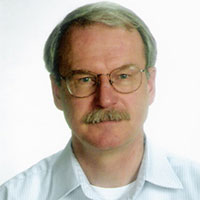Trigger Warning
Writers and Missionaries: Essays on the Radical Imagination, by Adam Shatz, Verso, hardcover, 358 pages, $34.95
Adam Shatz is the United States editor of the London Review of Books and a contributor to the New York Times Magazine, New York Review of Books, New Yorker, and other publications. He was a child prodigy chef, then studied history at Columbia University, then worked as a journalist in the Middle East. Thoroughly on top of the news, he writes in the Introduction, “The essays in this book – most of which appeared in the London Review of Books – were written between 2003 and 2021, between the launching of America’s “war on terror” and the intensification of America’s domestic wars.”
Shatz asserts “I am an American,” and, “As Sartre would have said, writers can protest their ‘situation’ but they cannot escape it.” Yet of the fifteen writers, novelists, film-makers, and philosophers profiled here, most are French or Palestinian. Only three are American, the black writers Richard Wright, Chester Himes, and William Gardner Smith. Shatz writes about the “political exile” of these men and James Baldwin in Paris.
Also located in Paris are the postwar literary movements called structuralism and deconstruction, exemplified here by Jacques Derrida, Roland Barthes, Alain Robbe-Grillet, and Michel Houellebecq. Shatz mentions related French writers such as Michel Foucault. The French intellectuals acquired an American audience, and they made a dent in academic life here in the 1970s and 1980s. They toured, taught at American universities, and spawned imitators. Today most Americans find them obscure and irrelevant. Even in English translation their prose is dense, hard to follow, and often nonsensical. Shatz admits as much. Why did he spend so much time and effort on them?
Maybe in 1990, when Shatz arrived at Columbia University, it still lay under the French enchantment. He wanted to find out why and went to the source. He presents an admirable summary of their ideas, cites some critics, and delivers a withering analysis. Claude Lévi-Strauss, for example, revolutionized the field of anthropology, mainly through his field work among Indian tribes in Brazil. He wrote about them in Tristes Tropiques in 1955, and followed this with equally influential books. Yet he was “austere, prickly, solitary,” a sloppy note-taker in the field, a mystic at heart, and arrogant in his theories. The popularity of his books owes more to his talent for writing good stories, in which he is the hero, lone and shining.
Shatz’s profiles of Fouad Ajami, Kamel Daoud, Juliano Mer-Khamis, and especially of the Columbia professor and journalist Edward Said, are deeply informed and clearly drawn. The first three men are unknown to Americans, but the theme of Palestinian culture and politics is as much in the spotlight as it ever was. Shatz is Jewish but not religious, he says. Living in Israel, he made friends with many Israelis and many in the Arab world. More than that, he made an effort to go beyond the rhetoric and emotion, to understand their ways of thinking.
Kamel Daoud, based in Algeria, illustrates the point. His 2013 novel The Meursault Investigation is “a thrilling retelling of Albert Camus’s 1942 classic The Stranger, from the perspective of the brother of the Arab killed by Meursault, Camus’s antihero.” The chapter updates whatever you might know about the former French colony, the war for independence in 1962, and the continuing Islamic revolt. Between the secular government of Algeria (the French-educated elite) and the insurgent common people, Daoud steers a middle course. Shatz visited the writer at his apartment in Oran. When it was time to leave, Daoud said:
Housing an American would doubtless turn out to be one more black mark against him, further proof that he had sold out to the forces of imperialism.
Daoud knows how his critics think, in part because he used to think the same way. He is an ex-Islamist, and he has a defector’s zeal.
Evidently, Shatz went through an existentialist phase, as many young Americans do, and read Jean-Paul Sartre, author of Being and Nothingness. He says, “I was attracted to Sartre less for his systematic tomes (which, to be honest, I couldn’t get through) than for his riveting portraits of other writers.” This book has an essay on Sartre’s influence on third world intellectuals, and his visit to Israel and Egypt in 1967, when he aligned himself with Israel on the eve of the Six-Day War. After that, his “cachet crumbled” among the Arabs.
Susan Sontag was a fan of French films, and so is Shatz. He profiles the film-makers Claude Lanzmann and Jean-Pierre Melville. Lanzmann fought in the Resistance in World War II, and he was closely connected with Sartre. He made the 1885 film Shoah, nine hours long, sponsored by the state of Israel and considered by some to be the best documentary on the Holocaust, the Nazi killing of millions of Jews. Also a Resistance veteran, Melville made austere films about crooks, gamblers, and the underworld. Very successful, the films had a profound effect on Hollywood and Martin Scorsese.
There are no “missionaries” here in the normal sense. Shatz’s subjects saw themselves as men with a mission. He makes the reader see them, in light and darkness.
